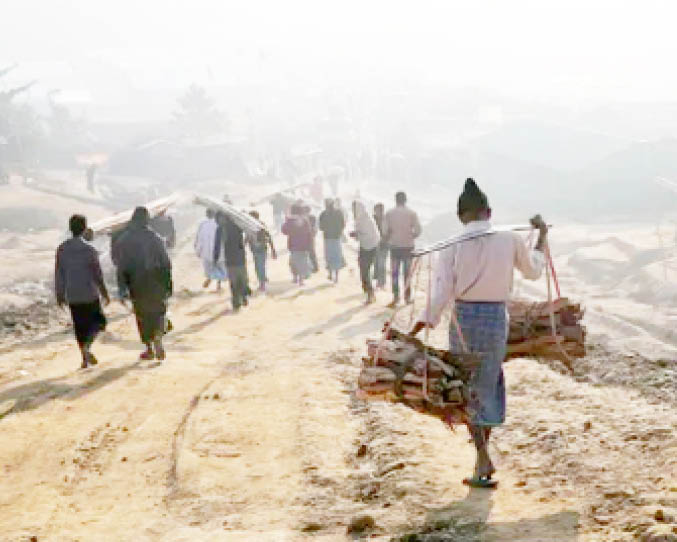Genocide case against Myanmar over Rohingya atrocities cleared to proceed
UN’s international court of justice rejects arguments advanced by military junta over crackdowns against Muslim minority group The United Nations’ highest court has rejected Myanmar’s attempts to halt a case accusing it of genocide against the country’s Rohingya minority, paving the way for evidence of atrocities to be heard. Police rescue 22 kidnapped victims in […]

UN’s international court of justice rejects arguments advanced by military junta over crackdowns against Muslim minority group
The United Nations’ highest court has rejected Myanmar’s attempts to halt a case accusing it of genocide against the country’s Rohingya minority, paving the way for evidence of atrocities to be heard.
Police rescue 22 kidnapped victims in Niger, foil attempt in Plateau
BREAKING: Terrorists threaten to abduct Buhari, flog train victims in fresh video
The international court of justice rejected all preliminary objections raised by Myanmar, which is now ruled by a military junta, at a hearing on Friday.
The case, which was filed by the Gambia, centres on brutal military crackdowns in 2016 and 2017 that forced more than 700,000 Rohingya to flee over the border to neighbouring Bangladesh.
It accuses Myanmar’s military of carrying out widespread and systematic “clearance operations” against the Rohingya, committing mass murder, rape and torching villages, with the “intent to destroy the Rohingya as a group in whole or in part”.
Myanmar had argued that the court did not have jurisdiction, claiming the Gambia could not bring the case because it was not directly affected by the events, and because a legal dispute did not exist between the two countries before the case was filed. It also claimed that the Gambia was acting as a “proxy” for the Organisation of Islamic Cooperation, and lacked standing because the ICJ only rules on disputes between states.
Such arguments were each rejected by the court. Reading the decision, the court’s president, US Judge Joan E Donoghue, said: “The court notes that the Gambia instituted the present proceedings in its own name as a state party to the statute of the court and to the Genocide Convention.”
Akila Radhakrishnan, president of the Global Justice Centre, said Friday’s decision was “an enormous step forward for justice”.
“It sends a signal to Myanmar’s military that they cannot commit atrocities with impunity. The case proceeding is all the more important in light of the February 2021 coup, which was enabled and emboldened by the impunity the military has been afforded for far too long,” she said.
The military seized power in a coup last year, and has unleashed a relentless campaign of violence to crush dissent. The UN rights office warned in March that the junta was carrying out widespread and systematic abuses against civilians that may amount to war crimes and crimes against humanity.
Tun Khin, president of the Burmese Rohingya Organisation UK, said objections filed by Myanmar were an attempt to slow proceedings, and that oppression of Rohingya continues. “For a year and a half the case has been delayed and every day the genocide continues. Laws and policies designed to make life unbearable and drive Rohingya out of Myanmar are part of the genocide and continue despite provisional measures ordered by the court,” he said, referring to a previous court order instructing Myanmar to do all it can to protect Rohingya from genocide as the case, which will take years, proceeds.
Tun Khin called on the UK to join the Gambia and back the case. “The UK claims international leadership on Myanmar but it’s Gambia, not the UK which has been leading,” he said. The Netherlands and Canada are supporting the Gambia.
Following last year’s coup, the junta is now representing Myanmar at the ICJ. The national unity government, formed by elected lawmakers, ethnic minority representatives and activists, had argued it should represent Myanmar in court, and that it would withdraw preliminary objections.
Source: Guardian.com
